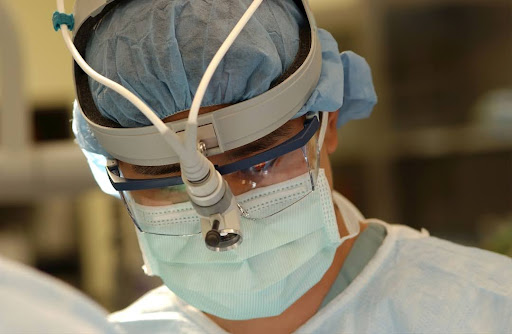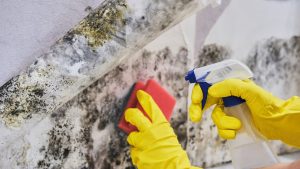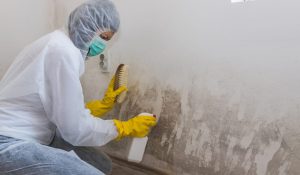
In the realm of healthcare, the importance of sterilisation cannot be overstated. It is a critical process that ensures the safety of patients and the effectiveness of medical procedures. One area where this is particularly crucial is in the sterilisation of endoscopes. These complex instruments require meticulous cleaning and sterilisation to prevent the risk of infections.
However, the process is not as straightforward as it may seem. It requires adherence to stringent protocols and the use of advanced sterilisation techniques. This is where professional sterilising services come into play. Investing in sterilising services can offer numerous benefits to hospitals. From ensuring compliance with health regulations to managing resources effectively, these services play a pivotal role in healthcare outcomes.
This article aims to shed light on why hospitals should invest in sterilising services for effective endoscope sterilisation. It will delve into the risks, benefits, and the impact on patient safety and healthcare outcomes. Join us as we explore this critical aspect of healthcare and its implications for the future.
The Critical Role of Endoscopes in Modern Medicine
Endoscopes are invaluable tools in modern medicine. They allow doctors to diagnose and treat a wide range of conditions with precision. These versatile instruments are used in various medical specialties, including gastroenterology, urology, and pulmonology.
The use of endoscopes has significantly improved patient outcomes. By offering minimally invasive procedures, endoscopes reduce recovery times and lower complication risks. This technology provides essential insights into the human body that were once difficult to obtain. As such, maintaining their cleanliness and functionality through proper sterilisation is vital for ensuring patient safety and the continued success of medical treatments.
Risks Associated with Inadequate Endoscope Sterilisation
Inadequate sterilisation of endoscopes poses serious risks to patient health. Contaminated instruments can be breeding grounds for harmful bacteria and viruses. This can lead to infections and even outbreaks within healthcare facilities.
The consequences of improper sterilisation extend beyond individual patient cases. Hospitals face potential legal action and reputational damage if infections arise from poorly sterilised endoscopes. Failure to adhere to strict sterilisation protocols can compromise a hospital’s standing and patient trust.
The impact on healthcare systems can be substantial. Healthcare-associated infections (HAIs) strain resources and increase costs. To underscore the dangers of poor sterilisation practices, consider these risks:
- Increased incidence of patient infections and complications
- Legal and financial ramifications for healthcare institutions
- Potential loss of hospital accreditation and reputation
Therefore, investing in proper sterilising services is not just a compliance issue but a critical strategy for patient safety and hospital success.
Benefits of Professional Sterilising Services for Hospitals
Investing in professional sterilising services offers numerous benefits to hospitals. One significant advantage is expertise in dealing with complex medical equipment like endoscopes. These services ensure thorough decontamination using state-of-the-art methods and technologies.
Professional sterilising services not only enhance the quality of healthcare services but also contribute to operational efficiency. By outsourcing sterilisation, hospitals can focus resources and efforts on primary patient care. This shift allows for better allocation of staff and financial resources.
Moreover, these services provide hospitals with several specific benefits, including:
- Access to specialised knowledge and trained personnel
- Improved compliance with the latest health and safety regulations
- Enhanced patient safety and confidence due to effective infection control
Professional services pave the way for improved healthcare outcomes and are a smart strategic decision for hospitals aiming to maintain high standards and patient trust.
Ensuring Compliance with Health Regulations
Compliance with health regulations is crucial for hospital operations. Professional sterilising services ensure all protocols and standards are met efficiently. They offer up-to-date knowledge about ever-changing guidelines and regulatory requirements.
By partnering with sterilising experts, hospitals can mitigate the risk of non-compliance. This partnership not only prevents legal liabilities but also safeguards hospital accreditation. Ensuring compliance is vital in maintaining credibility within the healthcare community.
Cost-Effectiveness and Resource Management
Outsourcing to professional sterilising services can be cost-effective. Hospitals reduce costs by not needing in-house sterilisation equipment and training. This approach also diminishes the burden on hospital staff, allowing them to focus on core duties.
Resource management improves with expert sterilisation services. Hospitals can scale operations based on demand without investing heavily in infrastructure. This flexibility offers financial savings and improves operational efficiency.
Advanced Sterilisation Technology and Techniques
Professional sterilising services employ the latest technology and techniques. This ensures endoscopes and other medical instruments receive optimal treatment. These services stay on the cutting edge of sterilisation advancements.
Utilising advanced technologies not only improves the effectiveness of sterilisation but also extends the lifespan of medical equipment. Hospitals can benefit from reduced maintenance and replacement costs. Investment in professional services ensures that hospitals are equipped with the best tools for patient safety and care.
Impact on Patient Safety and Healthcare Outcomes
Effective sterilisation is vital for ensuring patient safety. Proper cleaning and sterilisation of endoscopes can prevent infections and improve overall healthcare outcomes. Patients receive safer care, reducing hospital-acquired infections that can lead to serious health issues.
Hospitals benefit from investing in quality sterilising services by enhancing the overall patient experience. When patients feel confident in the cleanliness and safety of medical equipment, their satisfaction rises. This satisfaction translates into better patient reviews and boosts the hospital’s reputation. Additionally, enhanced patient safety directly correlates with better healthcare results and reduced legal and financial risks for hospitals.
Case Studies: The Consequences of Poor Sterilisation
Historical case studies highlight the severe consequences of inadequate sterilisation. Improperly sterilised endoscopes have led to dangerous infections, affecting patient safety and trust. These cases underscore the critical importance of investing in reliable sterilisation practices.
For hospitals, the fallout from poor sterilisation is significant. It can result in reputational damage, legal liabilities, and financial penalties. Moreover, the negative impact on patient safety can cause lasting harm to both patients and the healthcare institution involved. These case studies offer valuable lessons on the necessity of professional sterilising services to prevent similar incidents.
The Role of Sterilising Services in Hospital Efficiency and Reputation
Investing in sterilising services enhances hospital efficiency by streamlining equipment management. With professionals handling sterilisation, hospitals can focus resources on core healthcare tasks.
A hospital’s reputation hinges on patient safety and care quality. Reliable sterilisation services help maintain high standards, boosting confidence among patients and peers. This reputation not only attracts more patients but also strengthens the hospital’s standing in the healthcare community.
Enhancing Hospital Operations and Patient Throughput
Professional sterilising services contribute significantly to smoother hospital operations. They ensure endoscopes and other medical instruments are always ready for use, minimising downtime and disruptions.
Enhanced throughput means hospitals can serve more patients efficiently. By reducing delays associated with sterilisation, hospitals can improve scheduling and patient flow. This leads to better resource allocation and allows healthcare providers to deliver timely care, ultimately improving patient satisfaction and outcomes.
Choosing the Right Sterilising Service Provider
Selecting the right sterilising service provider is crucial for ensuring effective endoscope sterilisation. Hospitals must look for providers with a proven track record in medical equipment sterilisation.
It’s essential to partner with companies known for adhering to the highest standards. A reliable provider will offer flexible solutions, accommodating the unique needs of different healthcare facilities. The ideal partner enhances a hospital’s infection control efforts and supports patient safety initiatives.
Key Factors to Consider
When selecting a sterilising service provider, hospitals should assess several key factors. It’s important to evaluate the provider’s reputation and expertise in the healthcare sector.
Hospitals must consider:
- Compliance with industry regulations and standards
- Use of advanced sterilisation technology
- Availability of tailored solutions for specific hospital needs
By paying attention to these criteria, hospitals can choose a provider that aligns with their goals and values. This choice contributes significantly to maintaining a safe and efficient healthcare environment.
Conclusion: Investing in the Future of Healthcare
Investing in professional sterilising services is a vital step for hospitals aiming to enhance patient care and safety. By choosing the right partners, healthcare facilities ensure better outcomes and operational efficiency. Commitment to high-quality sterilisation services secures a hospital’s future and strengthens its trust with patients.



